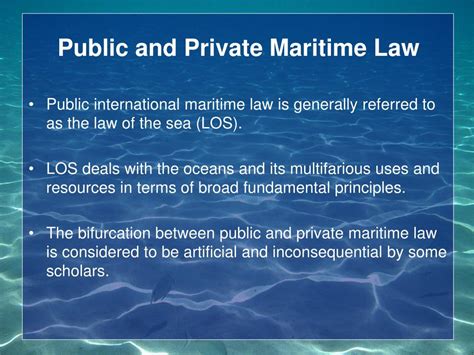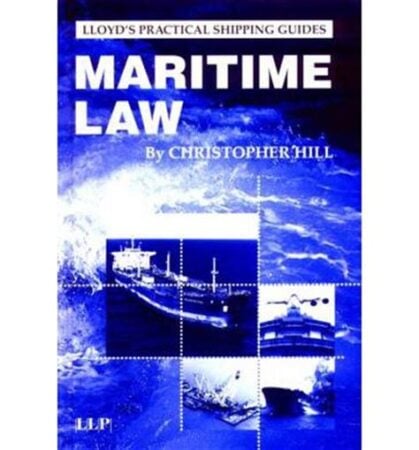
- How Public Maritime Law is Enforced: A Comprehensive Investigation
- Ahoy, Readers! Welcome Aboard
- Enforcing Public Maritime Law: A Multifaceted Approach
- Maritime Law Enforcement in Action
- Conclusion
-
FAQ about Public Maritime Law Enforcement
- How is public maritime law enforced?
- What are the main areas of public maritime law enforcement?
- Who is responsible for enforcing public maritime law?
- What are the penalties for violating public maritime law?
- How can I report a violation of public maritime law?
- What are some examples of public maritime law enforcement actions?
- How can I learn more about public maritime law?
- What are some of the challenges to enforcing public maritime law?
- What is the future of public maritime law enforcement?
How Public Maritime Law is Enforced: A Comprehensive Investigation

Ahoy, Readers! Welcome Aboard
Maritime law, the body of rules governing the seas, ports, and maritime commerce, plays a crucial role in maintaining order and protecting interests in the vast expanse of international waters. How, then, is this intricate system of laws enforced? In this comprehensive guide, we embark on a voyage to explore the diverse mechanisms by which public maritime law is upheld, ensuring the safety, fairness, and prosperity of our maritime domain.
Enforcing Public Maritime Law: A Multifaceted Approach
Coastal State Jurisdiction
The foundation of maritime law enforcement lies in the principle of coastal state jurisdiction. Coastal states exercise sovereignty over their territorial waters, extending up to 12 nautical miles from their shorelines. Within these waters, the coastal state has the authority to enforce national maritime laws and regulations, including those related to navigation, pollution, and fisheries.
International Cooperation
Recognizing the interconnected nature of the seas, public maritime law also relies heavily on international cooperation. International treaties and agreements, such as the United Nations Convention on the Law of the Sea (UNCLOS), establish frameworks for cooperative law enforcement efforts. These agreements enable nations to coordinate their resources and share information to combat transnational maritime crimes, such as piracy, drug trafficking, and smuggling.
Flag State Responsibility
When vessels venture beyond coastal state waters, they come under the jurisdiction of their flag state—the nation whose flag they fly. Flag states have a duty to ensure that their vessels comply with international maritime laws and regulations, including standards of navigation, safety, and environmental protection.
Port State Control
Another important mechanism of maritime law enforcement is port state control. Under this system, port authorities inspect foreign vessels calling at their ports to verify their compliance with international standards. This process helps to identify and address non-compliance, contributing to the overall safety and security of maritime traffic.
Enforcement Agencies
A wide range of enforcement agencies play a role in upholding public maritime law. These include:
-
National Coast Guards: responsible for patrolling coastal waters, enforcing navigation laws, and responding to maritime emergencies.
-
International Organizations: such as the International Maritime Organization (IMO), which sets global maritime standards and coordinates enforcement efforts.
-
Specialized Agencies: such as the UN Office on Drugs and Crime (UNODC), which combats maritime drug trafficking and other transnational crimes.
Maritime Law Enforcement in Action
Table: Enforcement Mechanisms and Their Applications
| Enforcement Mechanism | Application | Examples |
|---|---|---|
| Coastal State Jurisdiction | Navigable channels, offshore oil rigs, fishing grounds | Enforcement of navigation rules, pollution controls |
| International Cooperation | Transnational maritime crimes, piracy | Joint patrols, information sharing |
| Flag State Responsibility | Vessels on the high seas | Safety inspections, compliance with international standards |
| Port State Control | Foreign vessels in national ports | Inspections for safety, pollution prevention, crew welfare |
| Enforcement Agencies | National coast guards, IMO, UNODC | Interception of smugglers, rescue operations, environmental monitoring |
Conclusion
The enforcement of public maritime law is a complex and multifaceted endeavor that involves a range of stakeholders and mechanisms. Coastal state jurisdiction, international cooperation, flag state responsibility, port state control, and the work of specialized agencies all contribute to the effective administration and enforcement of this vital legal framework.
By understanding the intricacies of maritime law enforcement, we can better appreciate the efforts undertaken to ensure the safety, security, and sustainability of our oceans and waterways. Stay tuned for more exciting explorations of the vast and captivating world of maritime law in future articles!
FAQ about Public Maritime Law Enforcement
How is public maritime law enforced?
Public maritime law is enforced by a variety of agencies, including the Coast Guard, the National Oceanic and Atmospheric Administration (NOAA), and the Department of Justice.
What are the main areas of public maritime law enforcement?
The main areas of public maritime law enforcement include:
- Enforcing international maritime treaties and conventions
- Protecting the marine environment
- Ensuring the safety of navigation
- Preventing and investigating maritime accidents
- Enforcing laws related to fisheries and seafood safety
Who is responsible for enforcing public maritime law?
In the United States, the Coast Guard is the primary agency responsible for enforcing public maritime law. The Coast Guard is a branch of the military that is responsible for patrolling the nation’s waterways and enforcing federal laws.
What are the penalties for violating public maritime law?
The penalties for violating public maritime law vary depending on the severity of the violation. Penalties may include fines, imprisonment, or both.
How can I report a violation of public maritime law?
You can report a violation of public maritime law to the Coast Guard by calling 1-800-240-3519.
What are some examples of public maritime law enforcement actions?
Some examples of public maritime law enforcement actions include:
- Boarding and inspecting vessels to ensure compliance with safety regulations
- Conducting search and rescue operations
- Investigating maritime accidents
- Enforcing fisheries laws
- Protecting the marine environment
How can I learn more about public maritime law?
You can learn more about public maritime law by visiting the websites of the Coast Guard, NOAA, and the Department of Justice. You can also find information about public maritime law in books, articles, and online resources.
What are some of the challenges to enforcing public maritime law?
Some of the challenges to enforcing public maritime law include:
- The vastness of the oceans
- The difficulty of detecting and apprehending violators
- The need for international cooperation
What is the future of public maritime law enforcement?
The future of public maritime law enforcement is likely to be shaped by a number of factors, including:
- The increasing use of technology to detect and prevent violations
- The growing awareness of the importance of protecting the marine environment
- The increasing need for international cooperation to combat transnational crimes




